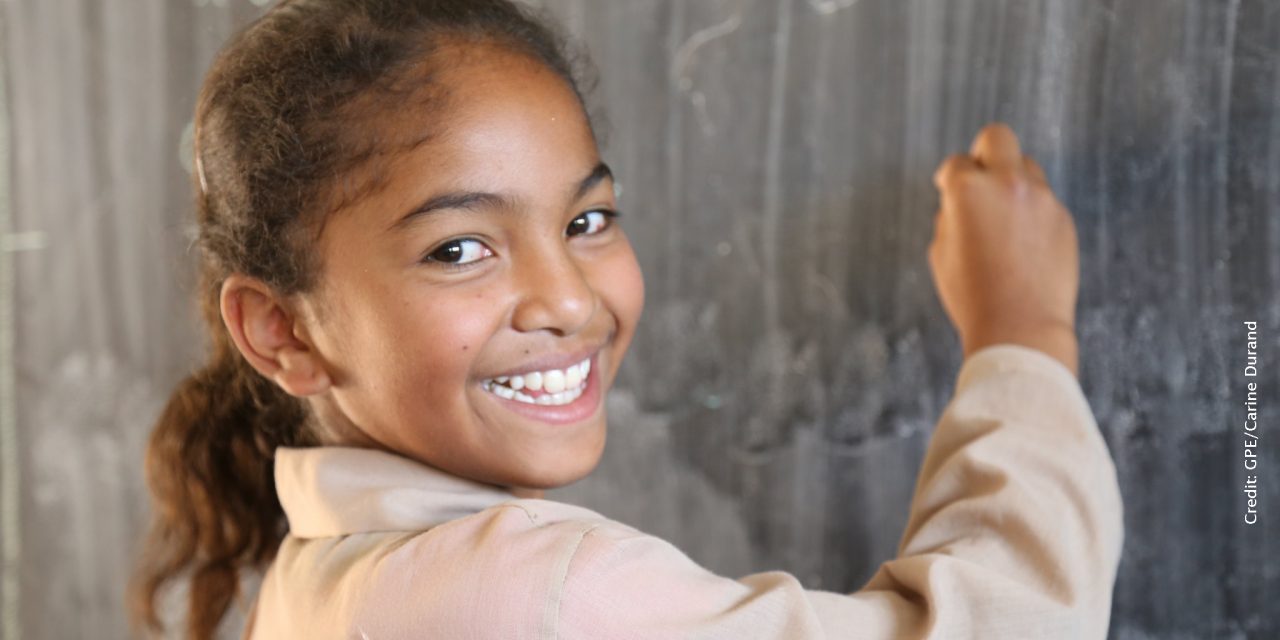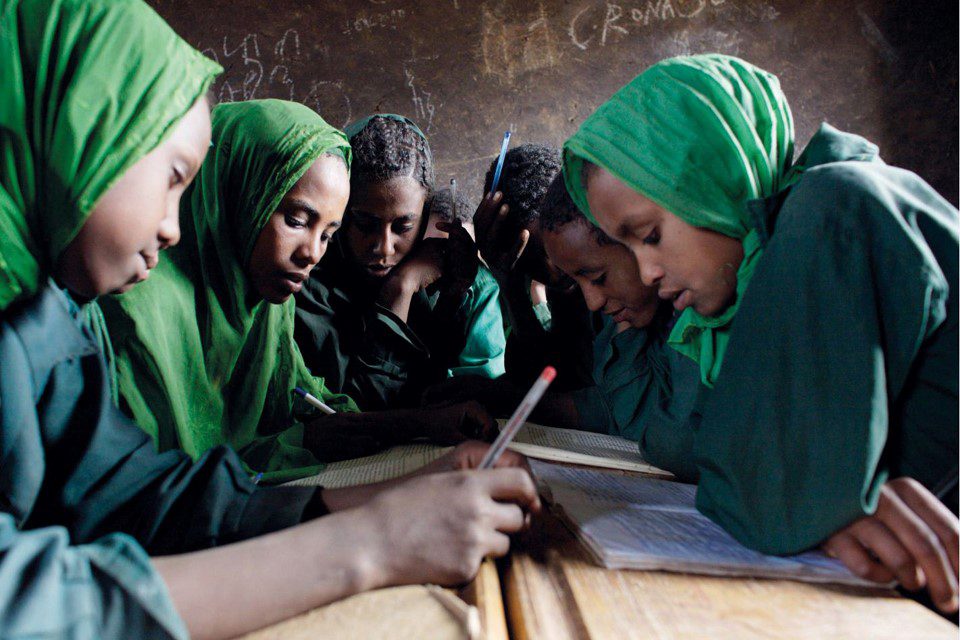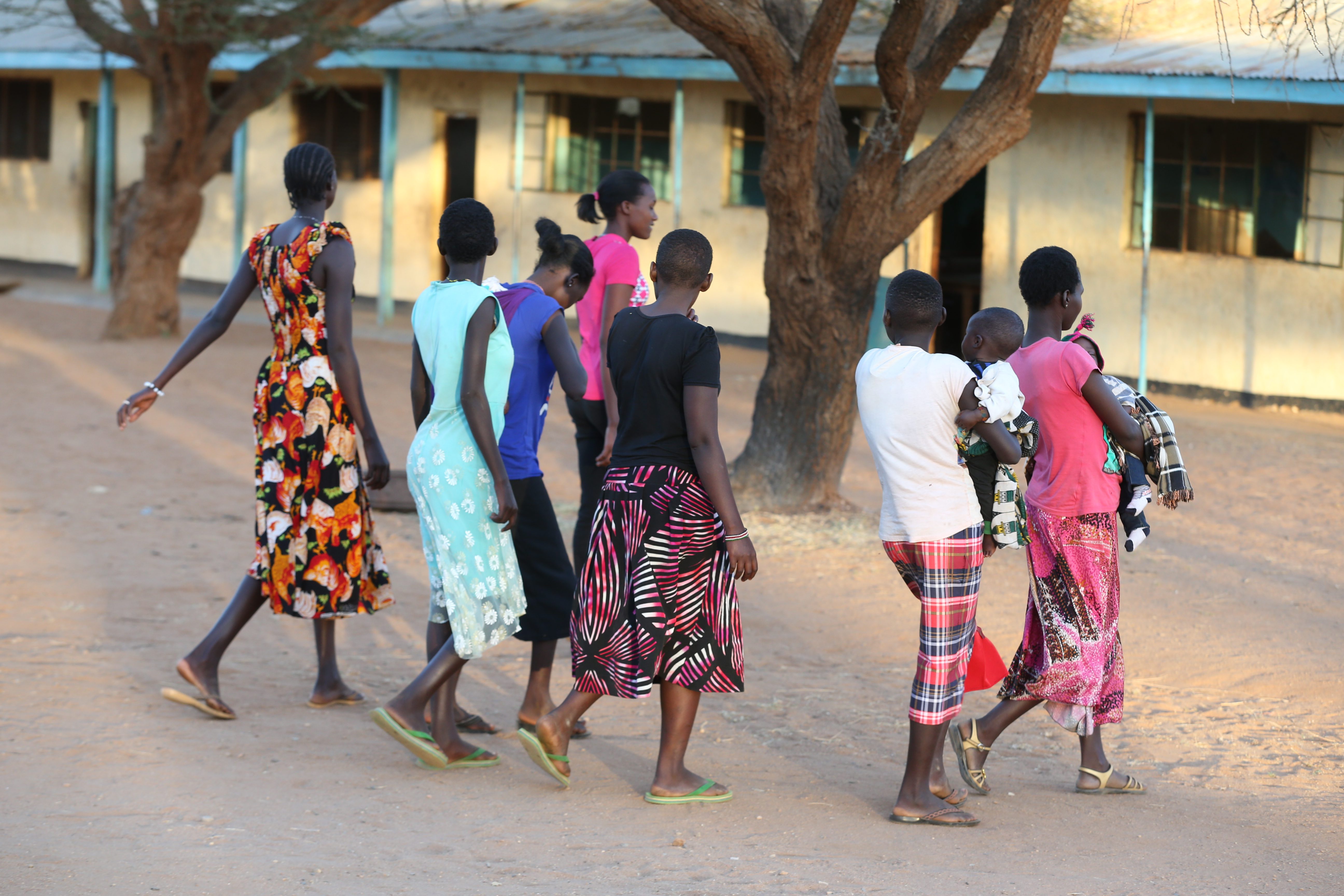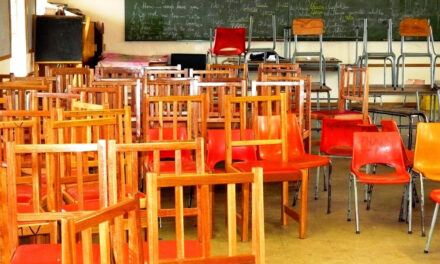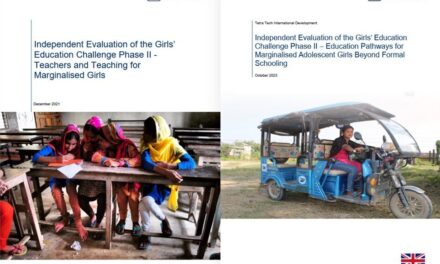This blog was written by Sharon Tao, Education Director, Girls’ Education Challenge. It was originally published on the Girls’ Education Challenge website on 22 January 2021.
Last year, the International Day of Education was celebrated with virtually no recognition or understanding of the new infection that was starting to emerge and spread across the globe. However, over the course of a year, what began as a global health crisis has swiftly impacted almost every aspect of life in all corners of the world, with a significant and damaging impact on education. Schools have been closed, learning has been lost and a generation of students are being affected worldwide. However, during this challenging year, governments, NGOs, schools, teachers, communities and students have adapted in unimagined ways, showing impressive flexibility, innovation and resilience.
For the Girls’ Education Challenge (GEC), the last 12 months have presented their own challenges. Although school closures have affected all children, it is clear that in many countries the impact on girls has been greater than on boys. During the crisis, strict lockdown rules have left girls much more at risk of gender-based violence, early marriage and pregnancy. Being limited to life at home has led to an increased chore burden for girls, and heightened levels of anxiety and depression. For many GEC girls, these challenges have been compounded by living in areas of conflict and political tension, or regions that have suffered severe weather events and economic shocks.
In response to these challenges and following school closures in March 2020, GEC projects adapted their work to respond to the immediate needs as they unfolded among the communities they serve. These plans were grounded in situational analyses and were developed collaboratively to ensure projects could support girls and communities using effective interventions and activities, giving appropriate focus to safeguarding issues and aligning with national responses in each country. These activities are outlined in this blog from June 2020.
Looking towards 2021
This year, the International Day of Education will focus on ‘Recovering and Revitalising Education for the COVID-19 Generation’. This is an important step that moves the emphasis from short term crisis management to longer-term strategies and recovery, drawing on the valuable lessons that have been learned and embedding some of this innovation and adaptation into future plans.
In line with the theme of ‘Recovery and Revitalisation’, the GEC is now focused on longer-term, strategic planning and addressing new and emerging challenges. Although some schools and learning centres are opening, many remain shut – leaving thousands of girls out of school for nine months, possibly longer. There are continuing concerns about the health and wellbeing of girls. Dropout rates are expected to be high. Catch up classes will be needed, in particular, for those who have not been able to learn effectively. Schools, when they do open, will need to be safe. GEC projects are aware of these issues and the following sections provide an overview of some of the recovery and revitalisation activities that GEC projects are implementing in order to respond.
Continuation of teaching and learning
GEC projects are actively engaging girls in learning through distance learning, support to parents or caregivers, producing and distributing learning resources, and provision of assistive devices for girls with disabilities. A number of projects are also ensuring continued professional development for teachers, facilitators and mentors. At a time when a majority of schools and learning centres are closed, ensuring girls are continuing learning and that educators are continuing to engage in professional development provides a critical bridge to schools reopening. As longer-term plans come into focus – for both GEC projects and the education systems they support – the sustained connection to learning are dovetailing with campaigns to support safe and healthy reopening of schools and learning centres.
Return to schools and learning centres
Projects are conducting and/or planning back-to-school campaigns while monitoring and analysing drop-out rates, re-enrolment and learning levels. These campaigns seek to address the barriers exacerbated by COVID-19, particularly for the most marginalised girls, such as girls with disabilities, or young mothers. Many projects will tailor messages to heads of households on the importance of supporting girls learning and once schools reopen. Many projects will also focus on identifying transition pathways and support girls to get onto them, such as vocational and entrepreneurship opportunities.
Wellbeing and resilience
Activities are also focused on girls’ wellbeing and resilience through improved access to mental health and psycho-social support and life skills lessons. Supporting the girls to help them deal with their new reality will be critical. An example of an intervention that has been developed during this period to reach a greater number of children and support their wellbeing is highlighted below.
Spotlight on My Better World, CAMFED and Impact(Ed), Ghana, Kenya, Malawi, Nigeria and Zambia
During this period, collaboration between GEC projects led by CAMFED and Impact(Ed) International and national governments has allowed CAMFED’s My Better World (MBW) curriculum to reach a large new audience. The MBW life skills and wellbeing workbook, developed together with young women in Africa, was adapted by Impact(Ed) International into an engaging, animated video series aimed at adolescents. This new series is now being aired on television in Kenya, Nigeria, Ghana and Malawi, Kenyan television reaching an audience of many millions (averaging 1.4 million combined viewers per week in Nigeria, and 1.7 million viewers per week in Ghana, for example). My Better World has also been adapted for radio, and, in partnership with the Ministry of General Education in Zambia, will be aired through the Education Broadcasting Service, as well as on local radio stations, reaching tens of thousands of children.
The series follows the adventures of African teenagers as they face scenarios and make decisions relating to their education, family relationships and friendships, highlighting the power of peer support – something that lies at the heart of CAMFED’s work to support girls and young women to overcome the obstacles they face. It reflects the content being delivered by CAMFED Learner Guides as ‘big sisters’ to disadvantaged students without access to digital learning. Learner Guides, young women educated with CAMFED support, use their lived experience to helping students in their communities to navigate challenges, build confidence, set goals, and learn how to achieve them, and have been at the forefront of CAMFED’s community outreach during the COVID-19 crisis.
Social protection and safety
The focus on social protection and safety of girls remains consistent. Projects across the GEC have a continued focus on activities such as community awareness raising around safety; health and hygiene messaging and distribution of supplies; and campaigns around safeguarding, gender-based violence, and sexual and reproductive health and rights. They are also helping schools to prepare for reopening safely, including installing WASH and hygiene facilities.
Influencing society and institutions
Projects have also returned to their original pre-COVID systems strengthening and advocacy agendas to influence society and institutions by working with local stakeholders including governments, school leadership and communities to combat exclusionary norms and promote girls’ rights. The example below highlights the way in which existing networks are being enhanced to ensure that pre-pandemic progress is not lost and that the voices of marginalised girls are still heard.
Spotlight on Sisters for Sisters, VSO, Nepal
The COVID-19 crisis has demonstrated the importance of working with and through community networks. This has not only offered the girls increased support and communication with a network of named, trusted adults, but also improved the projects’ ability to reach girls. Building on existing work, VSO and its partners are establishing and strengthening community volunteers’ platform as a Sisters Education Network – ‘Didi Bahini Shikshya Sanjal’ – at the local, provincial and federal level. The purpose of this network is to share learning and experiences and raise the voices of marginalised girls. It will aim to influence local authorities and policies, and promote girls’ rights to education, protection and safeguarding. It will empower parents and increase their engagement to reduce gender-based violence and continue marginalised girls’ education and learning. It will also strengthen the Complaint Response Mechanism by mobilising community-based frontline community volunteers, social mobilisers and Champions identified to tackle gender-based violence.
Expecting the unexpected
The last year has shown us that we do not know what is around the corner. Every phase of the pandemic has thrown up new and unexpected challenges. As a result, GEC projects have contingency plans in place for eventualities such as curfews, local lockdowns and tighter restrictions. At the same time, the focus on improving learning, supporting transition and pursuing sustainability remains the same. Although face-to-face contact in classrooms has temporarily been replaced with radio, television, phone calls or small-group learning activities where feasible, the underlying goals for GEC projects are unchanged. Revitalised are core principles of the girls’ education movement – that ensuring girls’ safety, security, wellbeing and the removal of societal and institutional barriers can lead to better learning and transition outcomes for girls. What the past 12 months has shown us is that these principles are imperative, particularly with a view to recovering and revitalising education for the COVID-19 generation.

